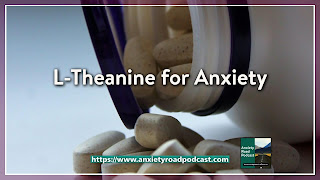This is a quick pebble in the road about the differences between a panic attack and a panic disorder. I got distracted by an ad for psycho-neutrients but I got there eventually.
Just a bit of housekeeping. I will be making short recordings for the month of June. I have things to attend to and time is going to be a challenge. Might do more recording on my phones to keep up with the doings and the responsibilities.
Well, today I had to do a recoding on my phone. My audio is jacked up again after updating my system.
Happens every three or four months. Don't know why. Pixel 6 to the rescue.
Panic disorder is when you have panic attacks on a regular basis or you have the fear of having them again.
So what can you do about it?
First you need to rule out any physical health problems. You need to see a doctor and get examined to rule out other physical conditions.
Second, you need to get educated about it to understand what is happening. You have many options on treatment. .
The U.S. National Institute of Mental Health has a downloadable brochure about Panic Disorder, When Fear Overwhelms.
There is also good information at the non-profit organization, Helpguid.org
Traditional treatment can include medication or therapy.
You also should consider breathing exercises, relaxation and meditation, nutrition support, and movement.
If you need support contact the National Suicide Prevention Lifeline at 988 or 1-800-273-8255, the Trevor Project at 1-866-488-7386 or text “START” to 741-741.
Resources Mentioned:
The National Institute of Mental Health has a page on Panic Disorder: When Fear Overwhelms.Helpguide.org is a non-profit organization that has a lot of information about mental health issues.
They have a lot of information about panic attacks and panic disorders.
Disclaimer:
Links to other sites are provided for information purposes only and do not constitute endorsements.
Always seek the advice of a qualified health provider with questions you may have regarding a medical or mental health disorder.
This blog and podcast is intended for informational and educational purposes only. Nothing in this program is intended to be a substitute for professional psychological, psychiatric or medical advice, diagnosis, or treatment.








